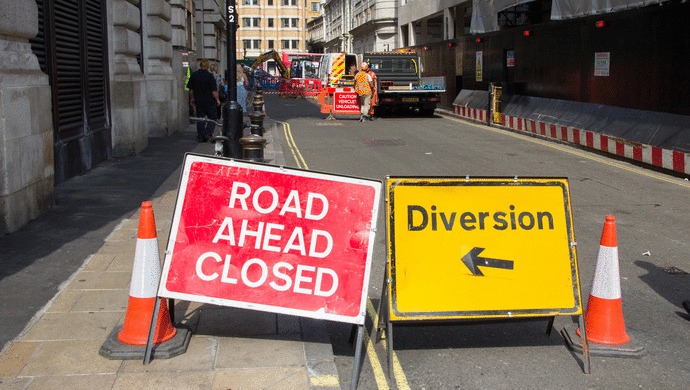Blockchain is lacking when it comes to adequate awareness and proper education

While technology stands as the foundation for digital assets like cryptocurrencies, there are few who can comprehend the full extent of its capacities.
For a substantial number of years now, the word blockchain has gained popularity in various sectors. Whilst technology stands as the foundation upon which many other processes have been developed, more specifically cryptocurrencies, the full extent of its capacities have not been comprehended by many.
This technology has been touted as the new revolutionary tech — one with the capacity to disrupt the entire digital ecosystem by facilitation advanced level enhancement.
Despite the hype around it and the various ways corporations are beginning to leverage the capacities of the technology, the global adoption of blockchain has been slower than expected.
One would expect a promising technology with so much to offer (like transparency, security, and pure decentralisation) to have been enthusiastically embraced by all and sundry. By now, it should have already been in its next-level phase of adoption considering that it has been around for 11 long years.
However, we all know that this is not the case — blockchain still struggles to gain ground.
Several reasons for this slow rate of mass adoption could be highlighted.
The complexity of blockchain usage is one important factor. Consumers have no proper understanding as to how the technology works, most especially in the trading of cryptocurrencies and how they facilitate transactions. Too many complexities for the simple consumer are enough to discourage them from further engagement or adoption.
Also, the absence of proper regulation for blockchain operations especially in the case of the cryptocurrency market is a major stumbling block. It has produced more scepticism as experts are claiming the crypto market can be described as a bubble.
It’s only a matter of time before it all crashes.
These and many more other factors including the costs required to set up have hindered the mass adoption of blockchain. However, one major factor is the lack of knowledge or proper education on blockchain technology which hinders the possibility of more blockchain developers.
This article will focus on just that.
The knowledge gap
Blockchain is lacking when it comes to adequate awareness and proper education. This has led to lots of misinformation and a lack of adequate knowledge about how it works.
When most people hear blockchain, they immediately attribute it to cryptocurrencies like Bitcoin and Ethereum. Many are oblivious to the fact that this technology has so much more to offer than just digital currencies. It’s capacities to facilitate product authentication, data transparency and flow in the health sector, the agricultural sector, Digital ID creation and many more have not been properly communicated.
Hence, the majority of the public is unaware or misinformed.
To produce more blockchain-enabled developers, there’s a need for an educational system which will equip people on adequate and thorough information on blockchain. Richard Tiu who serves as the Strategic Alliance Director for NEM Asia, realised that there are not enough blockchain-enabled developers in the manpower market which contributes to hindering the mass adoption of Blockchain.
He reckons that the only way to solve this is to introduce a blockchain educational framework.
Upon identifying the gap between demand and supply of Blockchain developers in the market, Richard’s idea of training developers in colleges and universities started to take form in August 2018. He took it upon himself to introduce Blockchain elective course to the universities and colleges in the Philippines and in less than a year, nine universities/colleges with a total of 19 campuses had begun adopting the syllabus.
Also Read: What the pinnacle of technology has taught us
A similar move is also being made by over 40 per cent of the top universities in the world. The universities have commenced adding blockchain and crypto studies to the list of courses being offered in order to foster more blockchain developers and engineers.
Richard who’s helping NEM establish this educational structure in the Philippines has also been inspired to bring about change in people’s lives for the better by educating them on the various capacities of Blockchain technology. He’s currently training 40 professors in this aspect with hopes of the numbers to increase in the near future.
This will help further produce more blockchain engineers and developers which will foster an increased rate of adoption.
The Greater Bay Area also plans on turning 11 city economies into a financial and technology hub to rival Silicon Valley by 2035.
However, education is equally important in making this a reality.
Speaking on this, Liu said, “it is perfect timing to nurture the growth of The Greater Bay Area and blockchain at the same time. Blockchain is estimated to intertwine with our everyday life in the coming 10 years. Industries are expecting more use cases to be implemented. It can start with turning the Greater Bay Area into a smart and trustable blockchain-enable hub. To turn this into reality, we need to start from the basic — the education.”
The realisation of this factor is vital for the expansion of the blockchain sector. When people are properly educated on blockchain tech and its applications, adoption will only follow suit easily and smoother.
Also, by producing more blockchain engineers and developers, the possibilities of innovations and developments leveraging blockchain become endless. Several universities and governments have taken this route of blockchain education just like how Richard is fostering this individually in the Philippines.
When more individuals and corporations embrace this initiative, there’s no telling the increased rate of adoption blockchain is going to experience.
—
Image Credits: jvdwolf
e27 publishes relevant guest contributions from the community. Share your honest opinions and expert knowledge by submitting your content here.
The post The knowledge gap may be the biggest hindrance to blockchain adoption appeared first on e27.